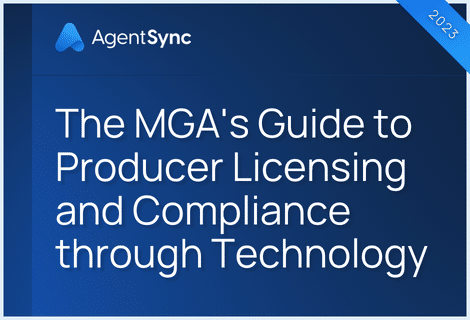

Welcome to the wonderful world of MGAs, their structures, and their audiences.
We’ve covered the difference between MGAs and MGUs (there really isn’t one), the intricacies of the MGA Model Act (it’s a hefty piece of legislation, you’re welcome), and today we’re going to look at whether MGAs are wholesale brokers, if wholesale brokers are MGAs, or if they’re different things entirely.
What’s a wholesale broker?
Wholesale brokers are intermediary insurance brokers that operate between retail brokers and carriers, and often don’t have direct contact with the insured.
Typically, wholesale brokers have specialized expertise in a particular line of authority, an unusual line of authority, or within a local insurance market. This expertise is extremely valuable to both carriers and retail brokers.
For instance, consider a retail broker whose client is looking for a very niche insurance policy – let’s just say food truck insurance. The retail broker might not have direct access to a carrier that provides this insurance. Instead of informing their client that tough luck, if they choose to own a food truck, they’re liable for all the grease fires, flat tires, and food-sick ires that come with it, the retail broker can link up with a wholesale broker that has a relationship with a carrier selling this sort of insurance.
The retail broker makes the sale and fosters their relationship with their client, the wholesale broker facilitates the sale and gets a piece of the pie, the carrier doesn’t need to drum up business because the wholesale broker is doing that for them, and the insured no longer needs to assume the total risk of food truck ownership. Everyone is happy.
Is an MGA a wholesale broker?
Yes, MGAs are a type of wholesale broker. But much like the square and rectangle, not all wholesale brokers are MGAs. Wholesale brokers can be either MGAs or surplus lines brokers. Here’s how they differ:
Both MGAs and surplus lines brokers work between retail brokers and carriers to facilitate coverage for the insured. The key difference between the two comes down to responsibilities; however, as with all things insurance, these rules aren’t hard and fast, and do change from state to state.

Surplus lines brokers
Surplus lines brokers are authorized to place insurance with non-admitted carriers – carriers that aren’t licensed in the state where the insured is located. On top of that, in most states, surplus lines brokers cannot bind coverage. But again, it really depends on the state. For example, New York gives surplus lines brokers binding authority, but California doesn’t.
MGAs
MGAs have a lot of power in the insurance industry. Not only do they have the authority to bind coverage (across all states), but, among other things, they also have the authority to underwrite for carriers.
What do you mean?
In practice, if you’re looking for coverage for your food truck business, you can reach out to an MGA that specializes in food truck insurance and has a relationship with local or surplus food truck coverage, or you could call a surplus lines broker that works specifically with surplus carriers to get quotes on surplus options.
The surplus lines broker relies specifically on broad surplus carrier relationships, whereas an MGA might work with fewer carriers but may have relationships with local or surplus insurers that offer tailored coverage.
The final verdict
While, yes, MGAs are a type of wholesale broker, no, wholesale brokers don’t need to be MGAs, and no, they are not one and the same.
Insurance is rarely cut and dry, which means that understanding state nuances and entity definitions is incredibly important to remaining compliant. Check out our demos to learn more about how AgentSync removes complexity in insurance compliance.

